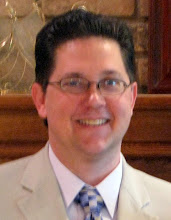To me, there are some basic things that any scientist has to do to maintain trust in his conclusions.
Tell the truth. Do not alter the data. When you alter the data or "splice together" different data to make your data match the conclusions, mark the change prominently. Doing otherwise is known as "fraud". Do not disparage or attempt to marginalize scientists who do not agree with your conclusions. Do not mischaracterize the views of scientist who do not agree with your conclusions. Like, for instance, calling them a small coterie of individuals who deny humanity's influence on climate.Do not attempt to prevent the publication of studies that disagree with you. If their study is wrong, scientists will demonstrate what mistakes were made and how. If their study is right, then preventing its publication is a crime against science, and probably a legal tort as well. Either way, the publication of varying viewpoints leads to advancement of truth and science. Be honest about your conflicts of interest. Getting paid for being alarmist is just as seedy as getting paid for ignoring facts the other way. When the data show you're wrong, admit it and shut up until you have thoroughly reevaluated your prior conclusions. And when you come back, have a different message. When you are discussing science, leave out such irrelevant data such as your opinion about how some scientists may "feel" about having to do good science. McIntyre has doggedly attacked the proxy records, particularly the statistics used to analyse tree-ring data.
Many scientists are tired of the criticisms [emphasis mine], and the IPCC concluded that it is "likely" that the second half of the twentieth century was the warmest 50-year period in the Northern Hemisphere during the past 1,300 years. But legitimate questions remain about paleoclimate proxies, according to the IPCC.
I'm sure the intelligentsia and the Catholic Church in the 1600s were tired of criticisms of their terracentric world-view. That says nothing about the relative merits of the Copernican system, vis-a-vis the Ptolemaic system.
A magazine called "Nature" can be presumed to have a biased viewpoint, and that's fine. Bias has its place. But science as a whole has to be the sum of all the ways of looking at things. True science is based upon parallax.
Biased censorship of a scientific viewpoint is just plain evil, probably illegal, and should lead to both civil and criminal penalties, especially if it forces honest scientists out of the field of climate research because they are afraid of being marginalized for speaking truth.
hat tip, James Taranto of Opinion Journal Online.

No comments:
Post a Comment